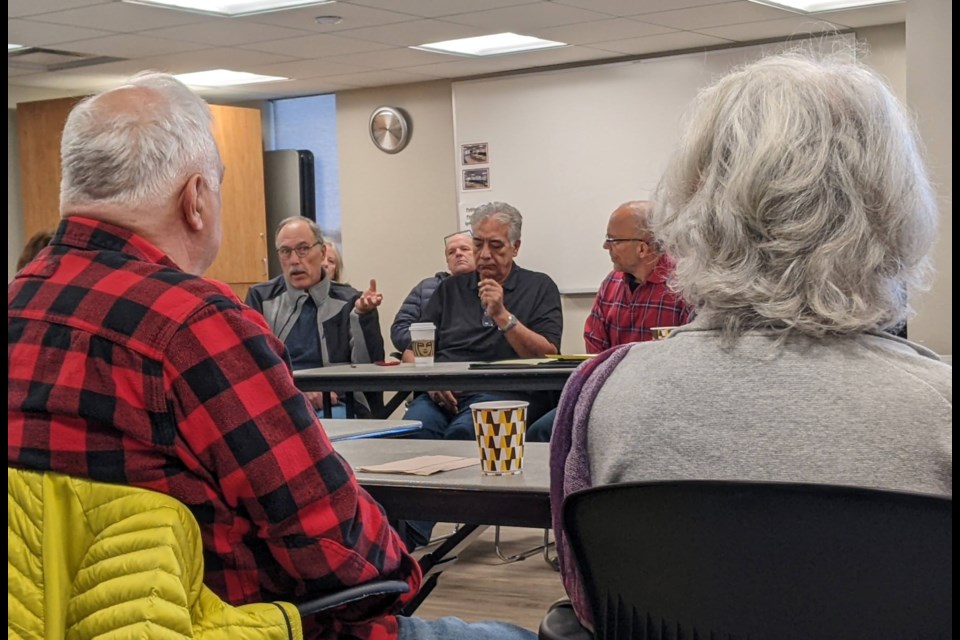Mayor Joan Peck’s biggest question about homelessness is what Longmont should do moving forward.
A room full of community members at Lashley Street Station tried to brainstorm solutions during the first of four community conversations hosted by Peck and Mayor Pro Tem Aren Rodriguez. The topic for Saturday morning was homelessness.
Peck began the conversation outlining the growing challenges with homelessness in Longmont, and what the city is currently doing to address the issues.
“Homelessness is not a problem that is going to go away, especially as we see it ramping up in our world,” she said. “... A lot of people have different attitudes about homelessness, who the people are. There’s not one label you can put on homelessness. They are people experiencing all kinds of issues.”
The city is currently collecting data on the homeless population in Longmont. City Manager Harold Dominguez added that the city has allocated $1.5 million from the American Rescue Plan Act toward this issue.
One reason for these conversations picking up has to do with some recent U.S. Supreme Court decisions, namely Martin v. Boise, which upheld in 2019 that homeless people could not be criminally punished for sleeping outside if no alternatives exist.
“The challenge is we have more people than we have housing. We have more people than we can possibly put into homes,” Peck said.
Rodriguez outlined the different ways Front Range cities are approaching homelessness, citing the sweeps of homeless encampments in Boulder and Denver along with Aurora’s recent move to ban urban camping. He emphasized that unification across regional policies could help everyone.
“Unless we coordinate better I don’t think it helps,” he said.
In Boulder County, there already is collaboration with Coordinated Entry. The service provides a housing first approach to help people needing homes across Boulder County.
Peck emphasized that she is not a fan of encampment sweeps and didn’t want to use that approach in Longmont, but acknowledged the frustrations of businesses and neighbors.
Dominguez touched on the city’s work to address concerns about growing homeless populations in public parks. He explained the approach of compassionate compliance, which aims to understand the perspectives of both neighbors and homeless people to find solutions.
“What we really wanted to do is create a situation where both the neighborhood could utilize the park but also the unhoused could utilize the park, and they could do it in a collaborative manner,” he said.
Also attending the conversation were representatives of Homeless Outreach Providing Encouragement and the OUR Center, who discussed the resources they provide and their perspective on working with and helping people who are homeless in Longmont.
One piece of feedback that was brought up a couple times was the desire to make it easier for unhoused people to access these and other resources, along with making sure folks know about what’s available.
For example, HOPE offers a safe place to park for people living in their vehicles providing restrooms, showers and other resources. People interested in the program can go to hopeforlongmont.org/safelot to apply, but representatives of the organization said that there is a waitlist.
Peck said that Longmont is exploring other opportunities to bring more transitionary housing options to the city, and most people who spoke during the conversation agreed that would be a good avenue to pursue. There was also some discussion about making this a sort of “campus” with financial, mental health, addiction and other resources available right there.
While the meeting was only an hour long, Peck emphasized that conversations on homelessness would continue and encouraged citizens to reach out with ideas for solutions.
Saturday’s discussion was the first in a series of four community conversations with the mayor and mayor pro tem. Three more are scheduled for June 4, Sept. 10 and Dec. 3 with topics and event locations to be announced.



